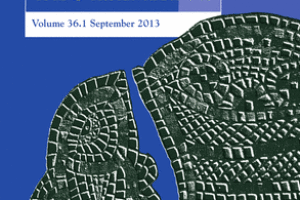I know for myself, 2012 has been off to a relatively relaxing and “centering” start. In fact, January is looking to be the slowest month of the next twelve for me, and I have decided in the last few weeks to decrease the ambition I had regarding personal projects for the month, to re-learn what rest feels like.
Yet, one thing I have just recently been reminded to be conscious of in this time is that “rest,” especially biblical rest, is not simply to be reduced to leisure, and certainly does not mean practicing escapism from the very real needs and realities of our families, friends, our church fellowships, and of the global state of God’s people. While we rest our bodies for a time, may we not forget those whose exterior environments are filled with anything but peace.
Voice of the Martyrs reports that intolerance towards Christians, and violence as a chief manifestation of this intolerance, was on the indisputable rise in 2011. The Stonegate Institute, a non-profit organizations that seek to research human rights issues, determined that in Indonesia for example, incidents of “Christian persecution” nearly doubled. Although covered up in this recent week by headlines covering the surprise tragedy of the capsized Costa Concordia, violence continues to mount in Syria. Just yesterday, Syria’s Leader- Bashar al-Assad – announced that the democratic protestors (of whom 5,000 have been killed since the uprising began last March) would be defeated, promising that “victory is neigh” for his loyalist supporters). Although this battle surrounds civil rights, the military violence that has engulfed the nation threatens Christians as well. Although the formal position of the Orthodox Church in Syria (which surprisingly constitutes about 5-10% of the population, depending on which authority you ask) supports al-Assad because his regime is secular and has let Syria co-exist as one of the most poly-religious nations in the Middle East, most are silent as they see the obvious harsh violence his fist enacts. Although democracy is the battle cry, who is to say the next regime wouldn’t be colored by extremist Muslims which is the single common description of nations where Christian persecution is greatest throughout the globe. These questions haunt the Christian as he or she tries to navigate streets patrolled by tanks and soldiers who have fired their weapons into crowds on numerous occasions, seeking to live life in a world potentially burgeoning on civil war.
So, now that we stand on this side of having thrown out our dried and spent Christmas trees, and the exciting newness of the clothes we got for Christmas has faded after going through the wash a few times, and biggest news in our hemisphere circumscribes discussion regarding who will be the next peacefully ushered in president, or whether or not our government should try its hand at regulating the internet… do we have a response? Should we feel guilty that our lives are so blessed by the general grace provided in our political-economic system, while others may lose their lives everyday?
The biblical model of approaching others in suffering is not one of self-inflicted guilt, but one of solidarity. And the response is not one of passive mourning, but of eschatological encouragement. When speaking of his Church in Thessalonica, it is clear that Paul is very aware of the state of suffering his church is in. In fact, he knows from first hand experience, as he himself experienced the antagonistic rejection of the Gospel in this same city. In his letters, he recognizes the affliction God’s people endure:
“For you, brethren, became imitators of the churches of God in Christ Jesus that are in Judea, for you also endured the same sufferings at the hands of your own countrymen, even as they did from the Jews.” (1 Thess 2:14)
We see that for Paul, being informed and aware of the state of God’s people is critical in his pastoral care through his writings. In his next epistle, we see that Paul draws upon his knowledge of Thessalonian suffering to praise and encourage them: “We ought always to give thanks to God for you, brethren, as is only fitting, because your faith is greatly enlarged, and he love of each one of you toward one another grows ever greater, therefore, we ourselves speak proudly of you amongst the churches of God for your perseverance and faith in the midst of all your persecutions and afflictions which you endure” (2 Thess 1:3-4). Paul not only knows himself of their suffering. In fact, he boasts of it to others, “proudly speaking” of their response to their circumstances, not only that others may pray, but that they might likewise rejoice and be encouraged by the steadfast testimony of the church in darker reaches of the world.
Perhaps what is most powerful is Paul’s longing for his people, and seeing how he values their endurance. After several chapters containing lavish praise for the endurance and steadfastness of their faith and their imitation of himself and other believers, he writes
“For who is our hope or joy or crow of exultation? Is it not even you, in the presence of our Lord Jesus at His coming? For you are our glory and our joy” (1 Thess 2:19-20)
As we roll into the tail end of another week of what may be “easy going” life, or maybe another one of the routine doldrums, let us evaluate our discipline in knowing about the state of the church in other parts of the world. May we seek to identify the way that we can likewise correspond, communicate, and encourage those in bitter suffering for the Gospel. And may we likewise learn to rejoice, not only when God sovereignly provides blessing, but in faithfulness even when the picture is grim.





Leave a Reply
Your email is safe with us.